News
-
 Health & Medicine
Health & MedicineNew studies add evidence to a possible link between Alzheimer’s and herpesvirus
Researchers saw higher levels of herpesvirus in the brains of Alzheimer’s patients, which may contribute to plaque formation.
-
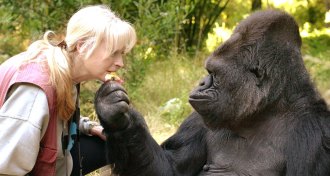 Anthropology
AnthropologyKoko the gorilla is gone, but she left a legacy
An ape that touched millions imparted some hard lessons about primate research.
By Bruce Bower -
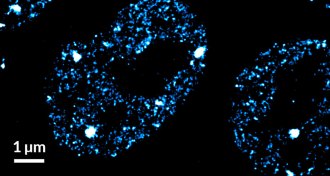 Life
LifeIt may take a village (of proteins) to turn on genes
Clusters of proteins transiently work together to turn on genes, new microscopy studies of live cells suggest.
-
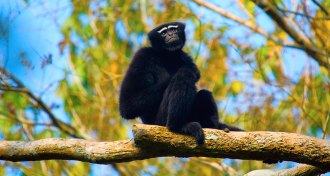 Anthropology
AnthropologyA 2,200-year-old Chinese tomb held a new gibbon species, now extinct
Researchers have discovered a new gibbon species in an ancient royal Chinese tomb. It's already extinct.
By Bruce Bower -
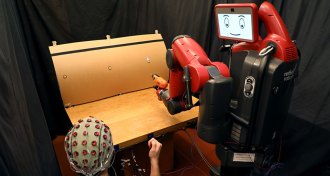 Tech
TechWith this new system, robots can ‘read’ your mind
Giving robots instructions via brain waves and hand gestures could help the machines operate more safely and efficiently.
-
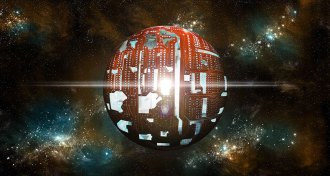 Physics
PhysicsTo combat an expanding universe, aliens could hoard stars
An advanced alien civilization might combat the impact of dark energy by harvesting stars.
-
 Planetary Science
Planetary ScienceVenus’ thick atmosphere speeds up the planet’s spin
Venus’ thick atmosphere can push on mountains on the surface, changing its rotation period by a few minutes every day.
-
 Psychology
PsychologyPhone apps are helping scientists track suicidal thoughts in real time
Researchers are using smartphones to tap into the ups and downs of suicidal thinking that occur over hours and days, hoping to help prevent suicides.
By Bruce Bower -
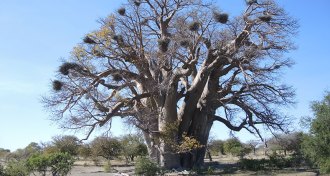 Plants
PlantsThe most ancient African baobabs are dying and no one knows why
Scientists aren’t sure what’s killing the oldest African baobabs, nine of which have lost big chunks or died in the last 13 years.
By Susan Milius -
 Astronomy
AstronomyMagnetic fields may be propping up the Pillars of Creation
Scientists made a map of the magnetic field within the Pillars of Creation, a star-forming area depicted in an iconic Hubble Space Telescope image.
-
 Health & Medicine
Health & MedicineThe number of teens who report having sex is down
About 40 percent of high school students are having sex, the lowest amount in the last three decades.
-
 Earth
EarthUnderwater fiber-optic cables could moonlight as earthquake sensors
The seafloor cables that ferry internet traffic across oceans may soon find another use: detecting underwater earthquakes.